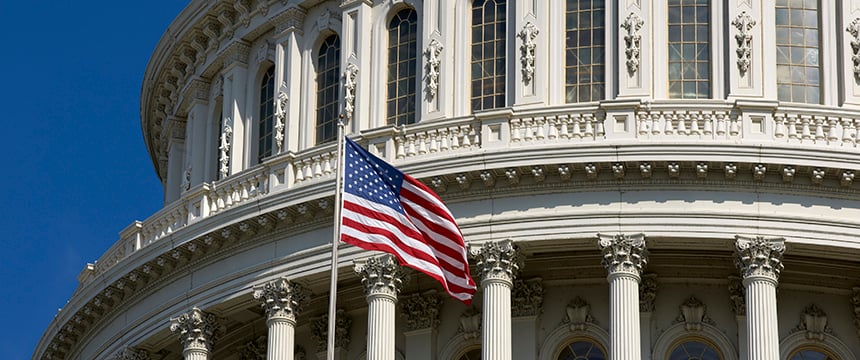Renewed Biden Administration Commitment To the International Trade War Underscores Importance of Customs Compliance for Automotive Companies

1. Customs Compliance Will Continue to be Essential Under the New Administration
Under the Trump administration, customs matters came to the forefront of compliance attention for many automotive companies. This was primarily due to three factors:
- Unprecedented implementation of high special tariffs, including section 232 duties on steel and aluminum and section 301 tariffs on nearly all goods from China;
- The pivot of Customs to emphasizing enforcement and revenue collection, given the much greater tariffs that were collected as a result; and
- The long-awaited completion of the Automated Commercial Environment (ACE) portal, which now gives Customs the tools to run sophisticated searches to find anomalies in import patterns, including the types of HTS misclassifications, undervaluation of entered value, and erroneous country-of-origin declarations that can lead to large underpayments of customs duties.
As a result, automotive companies that regularly act as the importer of record discovered the importance of customs compliance. All of which leads to the key question: Will these recent customs trends – and the need for careful vigilance in matters of customs compliance – be as essential under the new administration as they were under the old?
All indications are that importers of record should continue to pay close attention to customs compliance in the new administration. Some reasons for this include:
- President Biden and his proposed international trade team have telegraphed that they do not anticipate making any sharp changes to U.S. international trade policy in the near-term, as the focus of the overall administration will be on economic recovery and the pandemic. As a result, there is unlikely to be any material change in the current trade environment for at least a year or more.
- There is a bipartisan belief that the new administration needs to keep up pressure on China to deal with perceived Chinese government manipulation of the international trade, investment, and intellectual property norms. Thus, even though the Biden administration likely would not have imposed the Section 301 duties in the first place, there are strong incentives to leave them in place as a lever to force the Chinese government to the negotiating table. Any new agreement to take care of these issues is likely to take a year or more to negotiate and implement.
- Even if the Section 301 duties are lifted, the likely result will be a surge of petitions seeking the imposition of antidumping and countervailing duties on China, shifting the trade war to a new playing field and keeping the tariff burden on Chinese imports for covered products.
- The new ACE environment, and the heightened ability of Customs to find instances of underpayment through electronic searches and analysis, is a permanent fixture.
- Customs is continuing to emphasize whether companies properly are claiming free trade preferences, especially under the USMCA. Because of the newer, and more stringent, originating requirements under the USMCA, the automotive industry – the most frequent claimant of such preferences – will continue to see outsized attention on its FTA claims.
- More stringent requirements for documenting originating status to gain free trade preferences under the USMCA will require companies throughout the automotive supply chain to carefully parse the rules for claiming free trade preferences, meaning that companies will lean on suppliers to carefully document and certify their compliance with USMCA requirements.
Because many automotive companies act as the importers of record, these factors all indicate the need for continuing vigilance on customs matters. To help with these tasks, the remainder of this update provides customs compliance best practices, including those gleaned from numerous customs disclosures and audits we have conducted over the prior year.
2. Customs Compliance Best Practices for the New Administration
Our recommendations for customs compliance are based upon the expectations of Customs and prudent best practices that tend to minimize compliance missteps. Some key items we recommend include the following:
- Prepare a Customs Compliance Manual. Based on our experience in recent audits, CBP expects importers to go beyond a simple compliance policy and instead to implement a comprehensive customs compliance manual that includes written, standard procedures and internal controls for each of the relevant elements of reasonable care. Importers that memorialize the measures in such a manual are less likely to have import-related customers errors and are in a better position to explain the scope and implementation of customs compliance programs to CBP auditors.
- Create a Customs Classification Index. We recommend importers regularly review the products they import and confirm the accuracy of the associated HTSUS tariff classifications codes. The U.S. government updates these codes periodically throughout the year, and new products may need new classifications. Importers should maintain the most current HTSUS classifications in a database that is available to their third-party customs brokers or other parties responsible for preparing customs entry filings.
- Review Product Valuations & Declared Value. Importers should review the methodologies used to calculate the ad valorem value of the products they import, paying particular attention to transactions involving related or affiliated companies. Special attention is also necessary to determine whether the valuation includes all relevant off-invoice items, such as royalties and assists.
- Coordinate with Customs Brokers & Freight Forwarders. Importers should engage with their freight forwarders and customs brokers to determine whether they are consistently following CBP requirements and should coordinate regarding required customs recordkeeping. These areas should not be left to customs brokers on their own, as the importer of record is ultimately the responsible party.
- Conduct an Internal Customs Compliance Audit. Larger importers or importers who are at a heightened risk for a customs inquiry or scrutiny should consider performing an internal customs audit to determine whether existing compliance systems are effective. A good starting point for such an audit may be found in the questionnaire at the end of CBP’s Importer Self-Assessment Pilot Program publication.1
- Conduct Compliance Training. Importers should train relevant employees on CBP requirements annually. Such employees typically include customs compliance staff, procurement personnel, and individuals working in the company’s shipping/logistics departments. Relevant compliance topics include:
- Importer of record responsibility;
- Classifying imported goods;
- Determining country of origin;
- Making preferential tariff claims under the USMCA and other FTAs;
- Coordinating with customs brokers and freight forwarders;
- Conducting post-entry checks and making corrections;
- Tracking assists and other valuation issues;
- Identifying and claiming relevant Section 301 exclusions; and
- Recordkeeping responsibilities.
- Evaluate USMCA/FTA Claims. Importers should review their use of FTA or other tariff duty preference programs to determine whether they are applying the eligibility criteria properly and have the documentation necessary to support their claims. If the goods come from Canada or Mexico, then claims for preferential tariff treatments should be evaluated against the USMCA rules, which often differ from the older NAFTA requirements. Some of the key issues to consider include:
- Whether the imported goods meet USMCA’s regional content requirements;
- Whether required certificates of origin are available at the time of entry; and
- Whether the company maintains all of the required documentation to support free-trade preferences for the appropriate period of time.
- Review Products for Antidumping and Countervailing Duties. Finally, companies should periodically review their imported goods to determine whether they may be subject to additional tariffs under various antidumping or countervailing duty orders.
3. Dealing with Customs Requests for Information: Informed Compliance Letters
A recent development is the issuance of “informed compliance” letters by CBP, a tactic we expect customs will continue to use in the new administration. These letters often are issued to major U.S. importers to encourage them to review their recent entries and determine if they have treated entries correctly where they acted as the importer of record. These letters often are sent to major importers who have not been audited in the past decade or that are viewed as being at a higher risk for violations.
The receipt of an informed compliance notification letter means CBP has reviewed the data of an importer of record and likely identified specific problems with its import transactions, putting the company at an increased risk of a comprehensive audit. According to CBP officials, the expectation is that companies that receive these letters will soon be the subject of a “focused assessment” or other type of CBP audit in the near future. The letters thus are a way of encouraging major importers to enhance their compliance and file voluntary self-disclosures in anticipation of the audit. To provide further “encouragement,” CBP has indicated that companies that do not follow up with a voluntary self-disclosure can expect any subsequently discovered violations will be subject to higher than normal penalties. The letters warn not only of potential monetary penalties, but also the prospect of seizure or forfeiture of imported merchandise.
Best practices in such a situation include:
- Preparing for a CBP audit;
- Reviewing its customs compliance policies;
- Reviewing the care taken by its customs brokers;
- Conducting a risk assessment, including with regard to the issues identified in the letter;
- Determining if its classifications are correct and supported by the product attributes;
- Determining whether any post-entry adjustments are needed;
- Determining whether free trade preferences are supported by FTA certificates of origin and appropriate regional content;
- Evaluating whether off-invoice items such as royalties and assists are appropriately recognized; and
- Considering whether there are any other issues in the company’s import data to indicate compliance failures and penalty risks.
While the assessment should start with the issues identified in the letter, the review should be comprehensive. Further, the review also should cover the rigor of the importer’s compliance measures and training, as these are evaluated by CBP in an audit. Any errors should be documented, and a plan put in place to strengthen the company’s compliance procedures and internal controls to prevent their recurrence.
The company also should strongly consider filing a prior disclosure. This can be accomplished using an initial marker, which merely informs CBP that an investigation of potential compliance lapses is ongoing. This locks in voluntary disclosure credit while buying time to complete a thorough investigation and provide a subsequent full report.
* * *
As can be seen, in the current high-tariff environment, careful compliance with customs regulations and importer-of-record requirements is essential for automotive companies, which are among the nation’s busiest importers.
——————————————–
1 U.S. Customs and Border Protection, “Office of International Trade Importer Self-Assessment – Product Safety Pilot Program Addendum, August 2014,” https://www.cbp.gov/sites/default/files/documents/ISAPS%20Handbook%202014v2.pdf.
